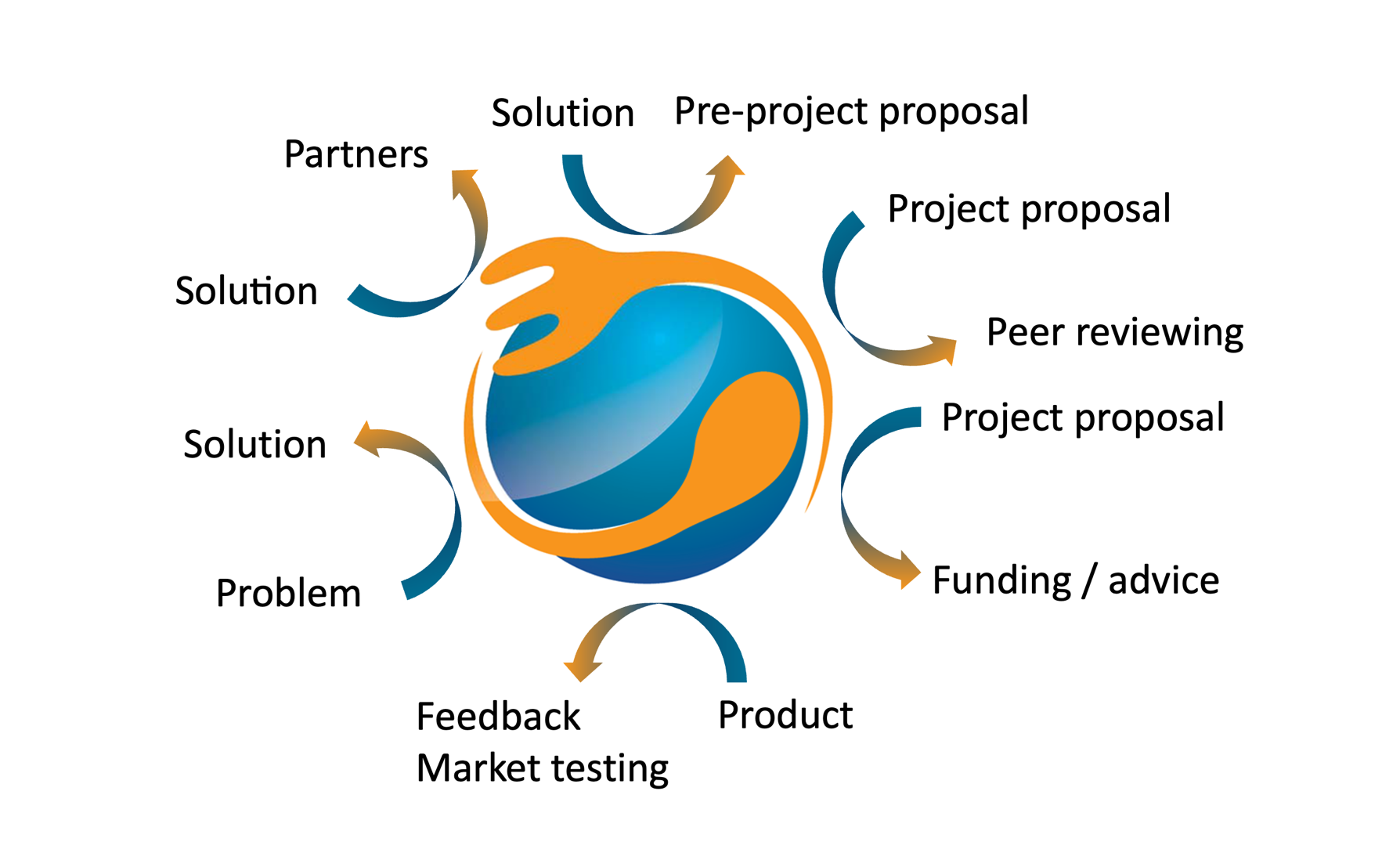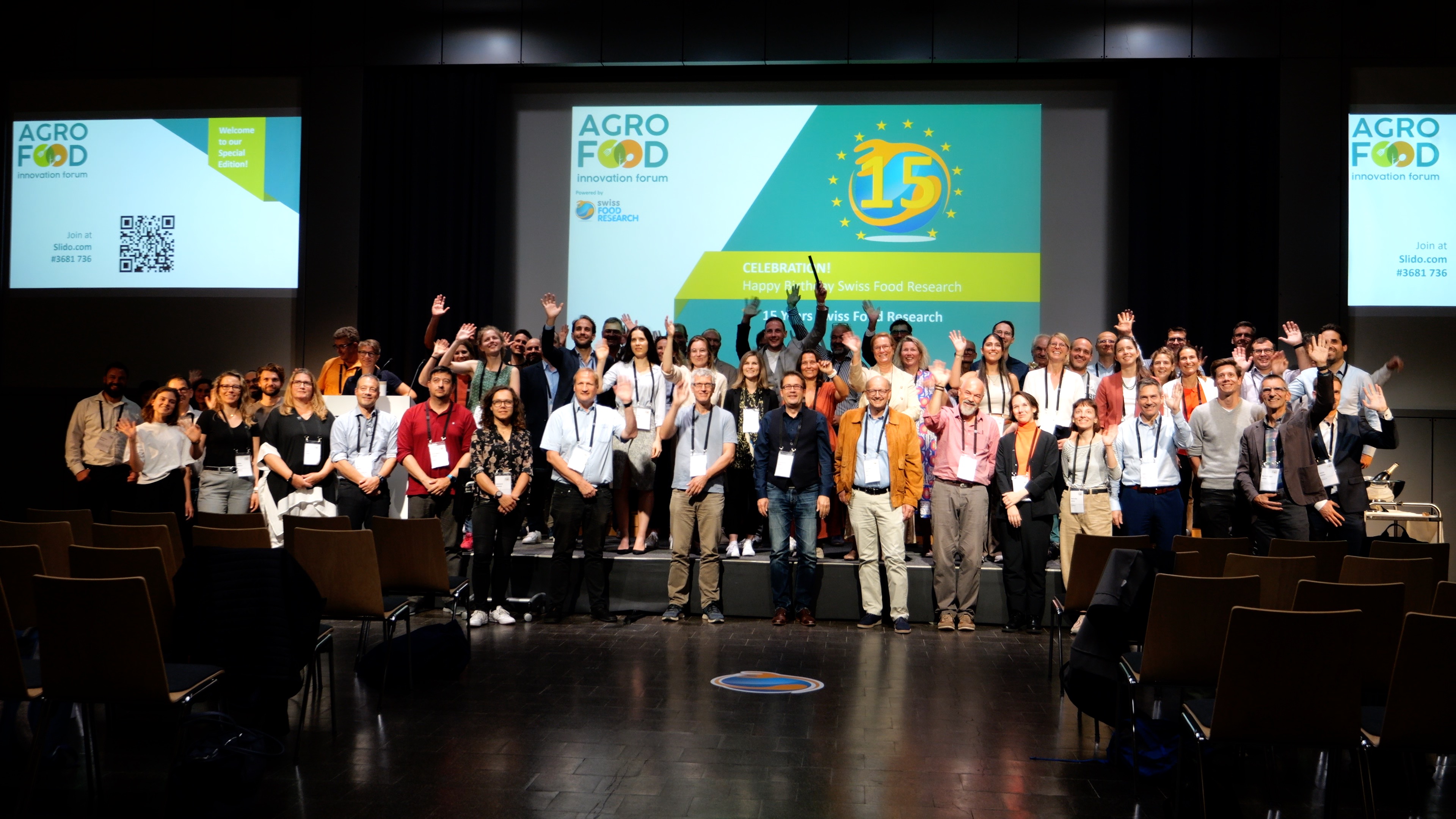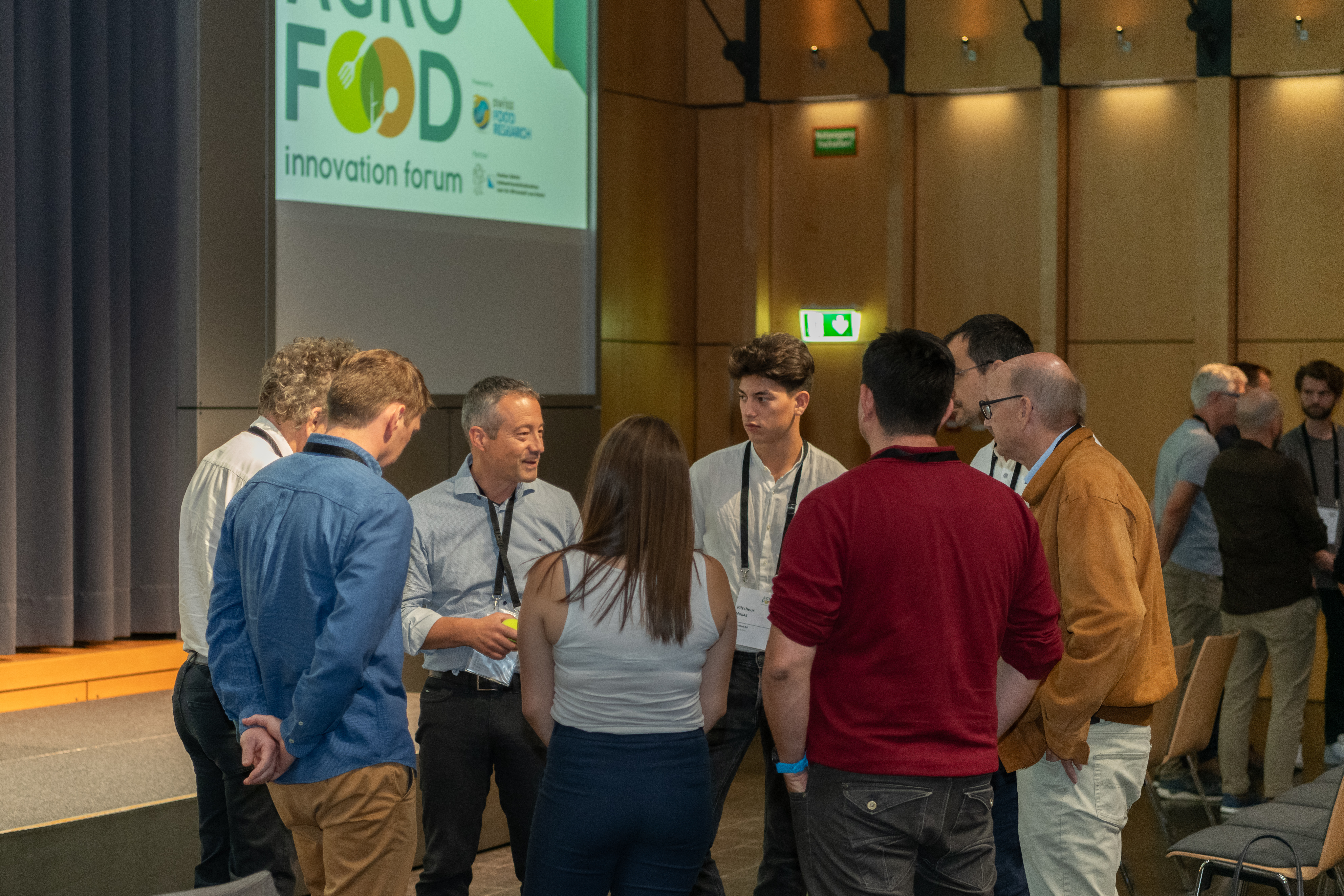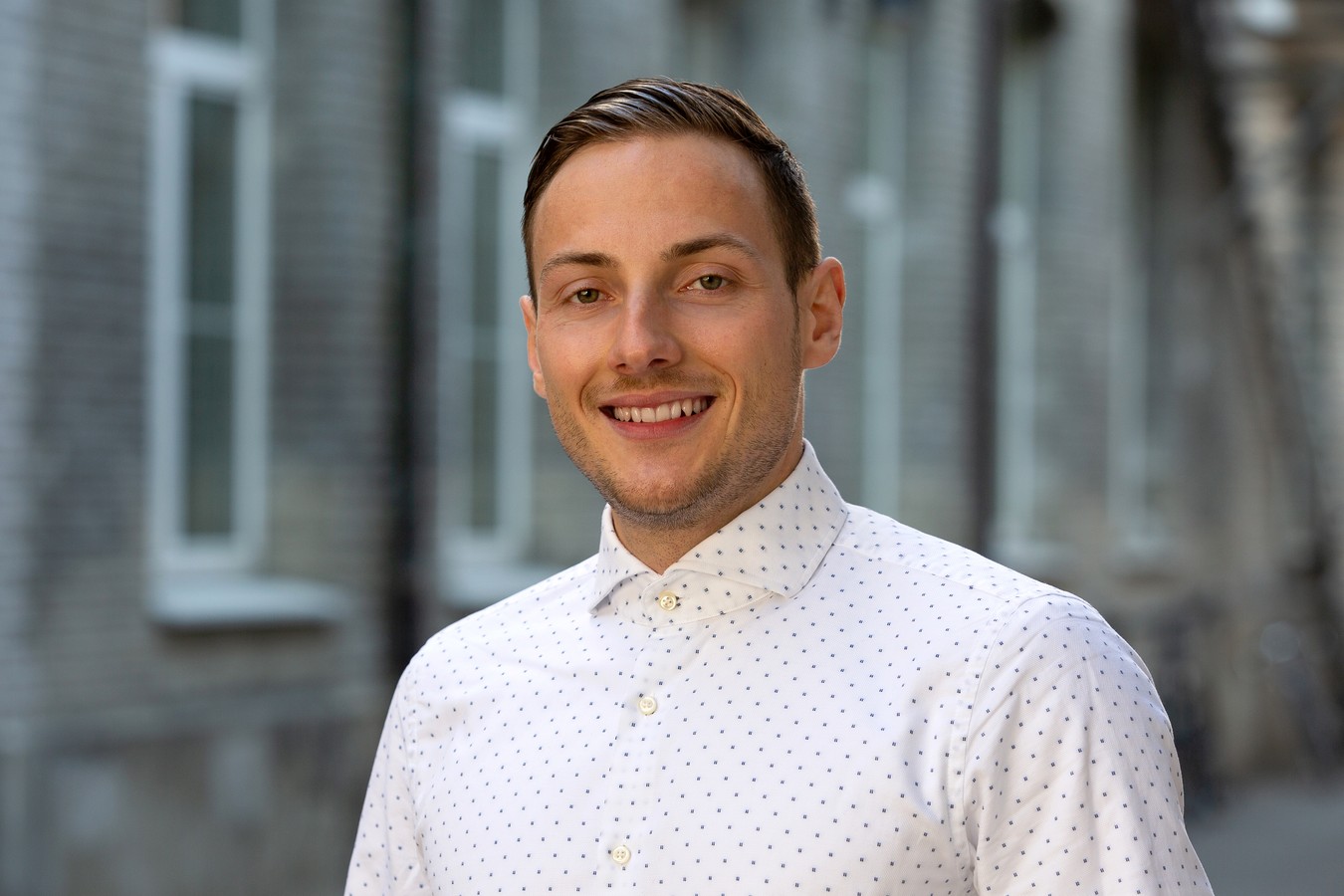SWISS FOOD RESARCH
Swiss Food Research is a non profit association with the goal of supporting Swiss food companies and their suppliers in adopting research-based innovations and thereby contributing to a sustainable and robust agrofood industry.
AVINA supports Swiss Food Research in building up a Swiss agrofood network and fostering innovation, collaboration and knowledge and technology transfer within that network.


- The right people and partners
- A problem that can be solved
- Trust
- Foresight & Time
- The will to persevere
- The right framework conditions: Product-market fit, political, regulatory, etc.
Of course, this list is not exhaustive, but based on it, we try to pass all of this on to our members and you can already derive the learnings from it.
People are at the centre. Swiss Food Research is nothing without its members. We are proud of our members, but even more important are the people behind them. From a 9-member board, to 52 researchers - who are active in various steering groups – to 3’500+ active innovators. Another learning is to articulate and describe problems correctly so that my counterpart (research partner, consumer, partner, etc.) also understands this is essential in order to find the way into the application. We have intensified this problem and language identification over the last few years, among other things through the problem three approach and other tools. Once the problem has been identified, we try to encourage trust and reduce inhibitions (“I can do something wrong”, “Someone will steal my idea”). However, we are still a long way from where we want to be. It requires a further cultural “shift” that we expose ourselves to the community at an early stage and work out problems and solutions together. If we then embark on the path of innovation, it takes time, foresight and continuity. This means that resources must be freed up internally to create space for the “artists” and to interact with other stakeholders.
One notorious construction site is day-to-day business: innovation is characterized by uncertainty and day-to-day business is our comfort zone. This is where we need to muster and support the energy and perseverance to avoid falling back into old patterns. We must continue to work on the environmental and general conditions in order to catalyse the transformation further.

